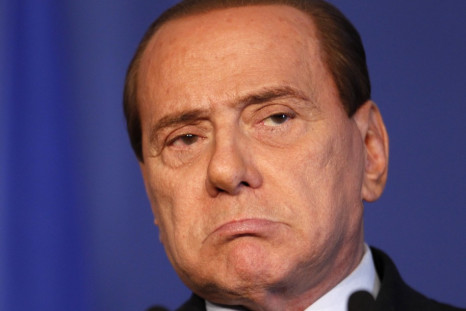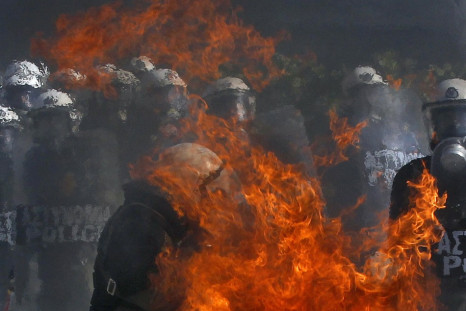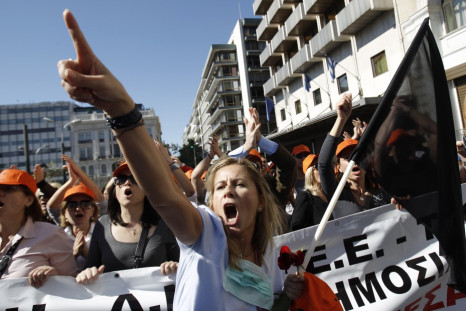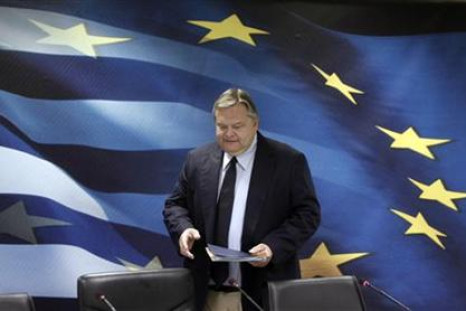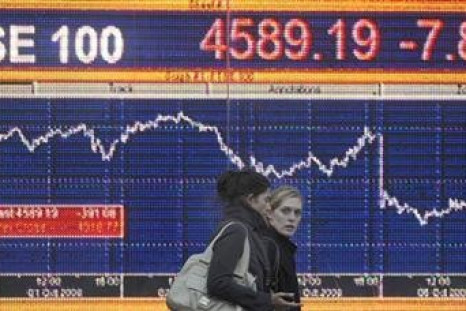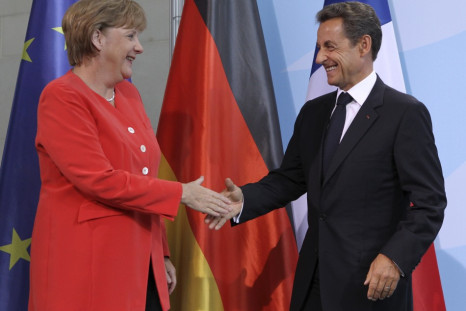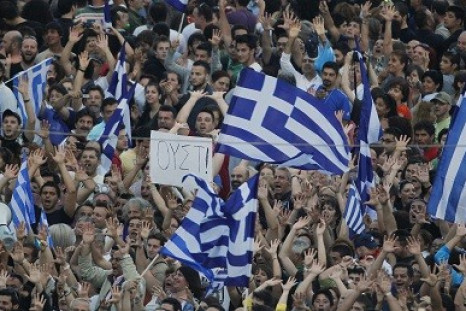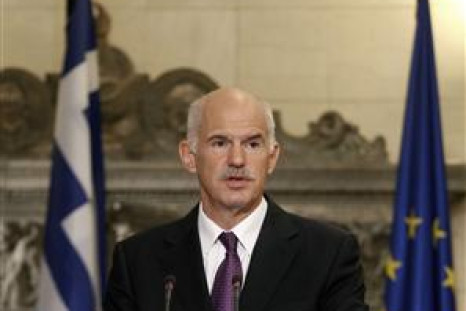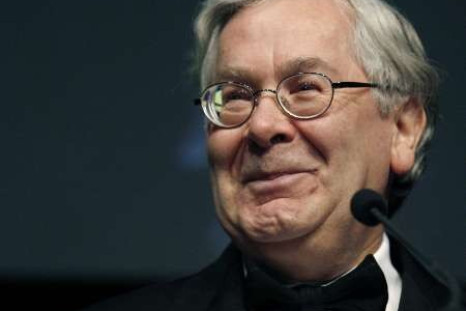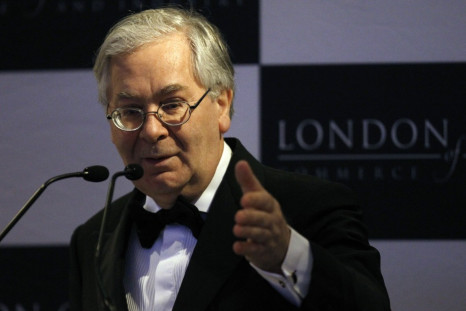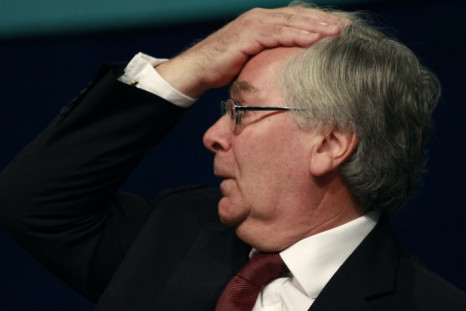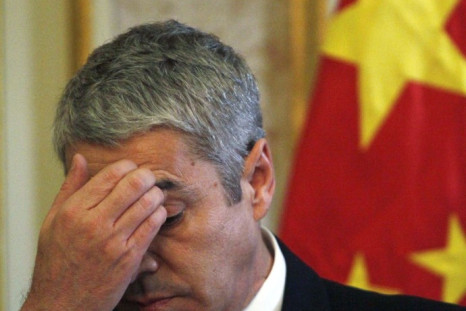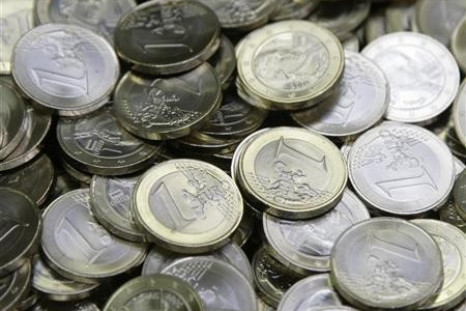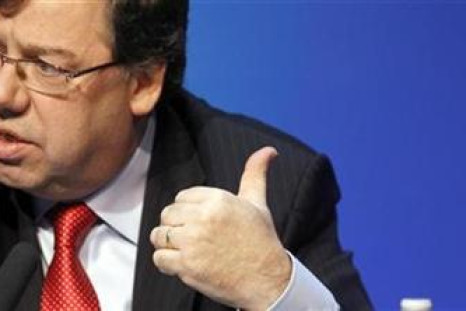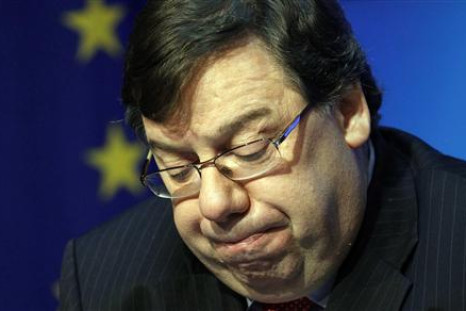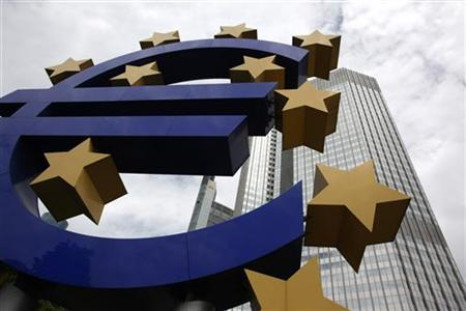Home
> European Central Bank
European Central Bank
Chaos in Italy as Deputies Urge Berlusconi to Resign
Silvio Berlusconi is feeling the pressure of a financial and political crisis as six former parliamentary loyalists sign a letter calling for a new government amid controversy over the cabinet's economic reform plan.
Euro Gets Priority Over Greece at G-20 Meeting
World leaders are burning the midnight oil on Wednesday, in an effort to end the Eurozone crisis. They have collectively made it clear saving the Euro is more important than the outcome of the Greek referendum.
The Eurozone - A Crisis of Confidence
Reading Bloomberg News' article by Lorenzo Totaro at lunchtime, Friday 28 October on Italy's latest Bond Sale falling short of expectations and the country's borrowing costs rising, I quickly checked to see what its current National Debt is. At €1,900.8 billion, amounting to €31,500 per inhabitant, this roughly measures 120 per cent of Italy's GDP.
Greece: Ruling Party Weakened and 1 Dead in Protests after New Cuts are Approved
Protests in Greece refused to die down and violence escalated Thursday, leading to the death of one protester, as Greek lawmakers narrowly passed a second package of austerity measures, which further weakened the country's ruling Socialist party.
It’s a Girl for Nicholas Sarkozy and Carla Bruni, but Who will Get the First Picture?
Author and activist Naomi Wolf has released a statement alleging that her arrest was a direct attempt by New York police to silence her after she attempted to inform protesters outside a New York awards banquet of their rights.
Greece Unrest: Athens Erupts as Country Nears Paralysis
Greece is on the verge of a total meltdown with the country struggling to come to terms with 48 hour general strike.
Greece Will Get Loans in Time to Avoid Default, Says Finance Minister
Greece will receive the next batch of bailout loans in time to avoid a disastrous default, the finance minister said on Tuesday.
Britain's FTSE 100, European Indexes Opening Sharply Higher
Britain's FTSE 100 index opened sharply higher Tuesday, tracking strong gains in Wall Street and in Asia, as European investors are becoming increasingly hopeful that euro zone officials will find a way to stem Greece's debt crisis.
Brussels Summit: France and Germany Agree to Deal as Leaders Meet to Save The Euro
Eurozone leaders will meet in Brussels today to discuss a deal to save both the Euro and the Greek economy
France and Germany agree on a deal, boosting hopes for Greek aid
The leaders of Germany and France have agreed that private creditors should participate in a new rescue programme for Greece by voluntarily agreeing to roll over their holdings of Greek government bonds.
French credit downgrade feared as global markets shaken further by Greek debt crisis
There is a growing fear in Paris that France is on the verge of a credit downgrade because of its exposure to Greek debt
Greek national strike pushes the country ever closer to default
Greece has been pushed ever closer to the harsh reality of default after Wednesday's general strike all but shut the country down. The strikes have closed schools, central and local government offices around the country, while hospitals were operating on skeleton staff. Port and public transport services were disrupted, while a walkout by journalists forced most morning news programming off the air.
Greek Default Expected Within 12 Months
Greece has become the lowest rated country in the world, falling behind nations such as Jamaica and Grenada after Standard and Poor's cut the country's rating by three notches. Greece now has a credit rating of CCC, down from its rating of B and it is expected to be reduced further. There is now growing frustration in Europe over the efforts being made by the Greek government with a default the most likely outcome.
Lloyds Banking Group, RBS and Barclays share price down on FTSE 100 ahead of BoE, ECB rate decisions
Shares in British banks were broadly down on the FTSE 100 in morning trading ahead of interest rate decisions from the Bank of England and the European Central Bank.
Bank of England interest decision: No change expected next week, maybe August?
It will soon be that time of the month again. Yes next week the Bank of England's Monetary Policy Committee will meet to determine interest rates, or to be more precise determine to hold interest rates.
Lloyds Banking Group, RBS, Barclays and HSBC share price up on FTSE 100 as Greek bailout deal nears
Shares in British banks were up on the FTSE 100 in morning trading as talks on a second Greek bailout look set to be concluded tomorrow.
Lloyds Banking Group, RBS and Barclays share price down on FTSE 100 as Moody's cuts Ireland rating
Shares in British banks were broadly down on the FTSE 100 in morning trading after Moody's cut the sovereign rating of Ireland and held the nation's outlook on negative.
Lloyds Banking Group, RBS, Barclays and HSBC share price up on FTSE 100 after ECB rate raise
Shares in British banks were up on the FTSE 100 in morning trading as movement at the European Central Bank appeared to offset fears about sovereign debt in the eurozone.
Lloyds Banking Group, RBS, Barclays and HSBC share price up on FTSE 100 as Portugal confirms bailout
Shares in British banks were up on the FTSE 100 in afternoon trading following the news that Portugal has asked for a bailout from the European Union.
No change expected from the Bank of England on interest rates, European Central Bank may go for rise
Both the Bank of England and the European Central Bank will be announcing their interest rate decisions tomorrow, and while no change is expected from the BoE there could be movement at the ECB.
Are US equities in a correction or is this the end of the bull?
The equity markets began to deteriorate weeks before the devastating natural disaster in Japan. Food inflation in the emerging markets and the ensuing unrest in the Middle East and North Africa causing an unwelcome spike in oil prices, and hawkish comments from the European Central Bank at a time when the continent's peripheral countries are struggling, collectively weighed on equity prices. Now news from Japan that is troublingly fluid regarding the earthquake's aftermath, which has soc...
Is the dollar’s role slipping?
During the height of the financial crisis, the U.S. dollar spiked as investors fled to the quality and safety of what is considered to be the world's reserve currency. Peaking in March 2009, the dollar has had but one strong rally since. That occurred in late spring 2010 as worries that the U.S. might experience a double-dip recession heightened. As equities were sold investors once again plowed into the valued destination of the dollar. In both instances the dollar's store of value be...
Inflation worries handcuff Central Bankers
With flagging economies and worries about austerity measures further crimping growth, about the last thing central bankers from the U.K. and Europe need to consider is combating inflation. But that is exactly what is being heaped upon decision-makers at the moment.
Is default Portugal’s Manifest Destiny?
The daisy chain of events manifesting from the European fiscal crisis that initially consumed Greece then Ireland in its wake has skipped into Portugal. This is not being greeted by market participants as much of a surprise since this development had been foreshadowed for months. Portuguese bond yields had risen above 7%, roughly 4% higher than the benchmark 10-year German bund. This is the inglorious territory of Greek and Irish bond yields just as they were teetering on fiscal insolvency. ...
Lloyds Banking Group, RBS and Barclays share price up on FTSE 100 after Portugal debt auction
Shares in British banks were broadly up on the FTSE 100 in morning trading as debt concerns in the eurozone were eased and ahead of a statement from the Bank of England.
What's next for the Euro?
Trading in currencies is basically a zero sum game. Rather than a stock or bond that can increase or decrease in value in absolute terms, and might move directionally the opposite of the equity or fixed income markets, currencies are all about relative movement. So in handicapping what might be the fate of the Euro currency in 2011, the question one has to ask is "In relation to what?"
Brian Cowen - A Taoiseach for all seasons?
If a week is a long time in politics, then Brian Cowen must be wishing that the relatively short time remaining between now and the next general election in Ireland feels like a decade to the electorate. With the latest polls showing his Fianna Fáil Party's ratings to be around 13 per cent after a lost by-election in Donegal and the first stage of an austerity Budget being passed on 07 December 2010, the Party needs all the time it can get to restore its fortunes.
Irish elections: Fianna Fáil's slip before the fall
The shade of Éamon de Valera must be having a wry smile. The party he founded in 1926, Fianna Fáil, was well and truly hammered in the Donegal South West by-election, losing to the candidate of Sinn Féin on 26 November 2010. As Fionnan Sheahan, Political Editor of the Irish Independent newspaper on Saturday, 27 November points out: "The party brand name hasn't won a by-election since 1925, when the post Civil-War version of the organisation was led by Éamon de Valera -- so the result wil...
Will Bank of England look at raising interest rates next week?
Next week will see the Bank of England make its latest decision on interest rates and could see Monetary Policy Committee members take a good look at the possibility of raising interest rates.
Lloyds Banking Group, RBS and Barclays shares up on FTSE 100 as ECB reasures on bank lending
Shares in British banks were up in afternoon trading and were helping the FTSE 100 fight a rearguard action following an abysmal day of trading yesterday, which saw the index drop 3.1 per cent to 4,914.22, the lowest close for 10 months and only the second time it has gone below 5,000 this year.


